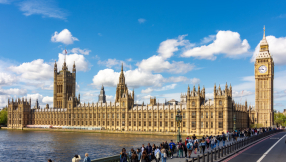
A new definition of 'Islamophobia' being explored by the government could serve as a de-facto Islamic blasphemy law, that will stoke division and play into the hands of Islamist groups, critics warn.
Deputy Prime Minister Angela Rayner has confirmed that her department is planning a working group that will establish a non-statutory definition of Islamophobia. The group will be headed by Dominic Grieve, who served as Attorney General under David Cameron’s coalition government.
Rayner claims the new definition will help the government deal with an apparent rise in anti-Muslim hate crime and help to create a society where “everyone feels safe and welcome”.
Grieve has tried to allay concerns that the new definition will infringe on freedom of speech, saying that the aim was to allow Muslims to “feel heard” and have their rights protected while also being “unwavering” in maintaining “freedom of thought and expression under law for all”.
However, former Labour MP and senior fellow at Policy Exchange, Khalid Mahmood expressed his concerns about the proposals.
According to The Telegraph, he said the new definition “will do nothing to create a society where everyone feels safe and welcome, but rather lead to even more division and mistrust”.
“The term Islamophobia has been weaponised by some of the most controversial groups which all have a degree of affiliation to Muslim Brotherhood and are trying to exert power and influence within British Muslim communities. Appointment to this group will give them further legitimacy," he said.
Mahmood further said that rather than obsession over a new definition, action needed to be taken on tackling poverty and discrimination among all, not just Islamic citizens in Britain.
Mahmood is notable for being one of the few Labour MPs to lose their seats in what was otherwise a landslide in 2024. He lost his seat to one of a number of independent Muslim candidates who campaigned vigorously on the issue of Gaza.
The rise of this independent group has been cited as evidence that Labour is less able to count an Islamic bloc vote, and as possible motivation for them to court the Muslim vote.
The Islamophobia plans have also been criticised by counter extremism and counter terrorism expert, Haras Rafiq. Rafiq noted that Britain already has strong legislation against hate crimes and warned that a broad definition could create a “chilling effect on free speech” and might be “weaponised to silence legitimate debate”.













